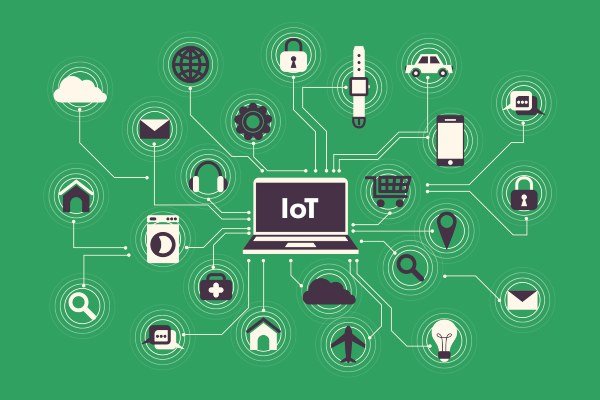
Introduction To IOT
The Internet of Things (IoT) refers to a system of internet-connected, interrelated objects that are able to collect and transfer data over a wireless network without human intervention.
The personal or business possibilities are endless. A ‘thing’ can refer to a connected medical device, a solar panel, a biochip transponder, a connected automobile with sensors that alert the driver to a myriad of possible issues or any object, outfitted with sensors, that has the ability to gather requirement and transfer data over a network.
Today, businesses are motivated by IoT and the prospects of increasing revenue, reducing operating costs, and improving efficiencies. Businesses also are driven by a need for regulatory compliance. IoT device deployments provide the insights and data necessary to streamline workflows, automate processes, meet compliance requirements, visualise usage patterns and compete more effectively in a changing business environment.
Our Services Offer A Range Of Benefits
Automation and Control:
Due to physical objects getting connected and controlled digitally and centrally with wireless infrastructure, there is a large amount of automation and control in the workings. Without human intervention, the machines are able to communicate with each other leading to faster and timely output.
Communication:
IoT encourages the communication between devices, also famously known as Machine-to-Machine communication. Because of this, the physical devices are able to stay connected and hence the total transparency is available with lesser inefficiencies and greater quality.
Information:
It is obvious that having more information helps making better decisions. Whether it is mundane decisions such as needing to know what to buy at the grocery store or if your company has enough widgets and supplies, knowledge is power and more knowledge is better.
Monitor:
The second most obvious advantage of IoT is monitoring. Knowing the exact quantity of supplies or the air quality in your home, can further provide more information that could not have previously been collected easily. For instance, knowing that you are low on milk or printer ink could save you another trip to the store in the near future. Furthermore, monitoring the expiration of products can and will improve safety.

Comprehensive IOT Include
Smart City
The Internet is not just access to people in a city but to the devices in it as well that’s what smart cities are supposed to be made of. We can proudly say that we’re going towards realizing this dream. e.g., Waste Management,Traffic Management, Electricity Management, Water Distribution
Farming
Farming is one sector that will benefit the most from the Internet of Things. With so many developments happening on tools farmers can use for agriculture, the future is surely promising. Tools are being developed for understanding Crop Patterns, drones for Farm Surveillance, Water Distribution, Drip Irrigation and more.
Healthcare
The Industrial Internet of Things consists of interconnected sensors, instruments and other devices connected with computers industrial applications like energy management, manufacturing, etc. While still being unpopular in comparison to IoT wearables and other uses, market researches like Gartner, Cisco, etc.
Industrial Internet
IoT medical devices can help in real-time monitoring of patients remotely. The devices can report an emergency like a heart failure, asthma attack etc., immediately to a physician. This can help in potentially saving the lives of many individuals. Data is stored online and can be accessed anytime by a physician.
Chatbots
Another famous example, based on the proliferation of Artificial Intelligence chatbots across industries, and every other website we seem to visit. These chatbots are now serving customers in odd-hours and peak hours as well, removing the bottleneck of limited human resources.
Optimising search
All of the e-commerce depends upon users searching for what they want, and being able to find it. Artificial Intelligence has been optimising search results based on thousands of parameters to ensure that users find the exact product that they are looking for.
Filtering spam
Due to the high volume of reviews that sites like Amazon receive, it would be impossible for human eyes to scan through them to filter out malicious content. Through the power of NLP, Artificial Intelligence can scan these reviews for suspicious activities and filter them out, making for a better buyer experience.
Recommendations
This is usually the first example that people give when asked about business applications of AI, and that’s because it's an area where AI has delivered great results already. Most large e-commerce players have incorporated Artificial Intelligence to make product recommendations that users might be interested in, which has led to considerable increases in their bottom-lines.
Building work culture
AI is being used to analyse employee data and place them in the right teams, collect feedback about the workplace, assign projects based on their competencies, and even try to predict if they're on the verge of quitting their company.
Hiring
With NLP, AI can go through thousands of CVs in a matter of seconds, and ascertain if there's a good fit. This is beneficial because it would be devoid of any human errors or biases, and would considerably reduce the length of hiring cycles.
